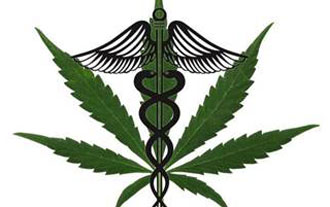Research Projects

Illuminating the Intersection Between Older Persons and Medical Cannabis
While researchers have illuminated several critical public health issues pertaining to the increasing availability of recreational and medical cannabis, there have been only a few glimpses into the public health issues concerning the use of cannabis among older persons across the state of Illinois. The extent to which older adults take cannabis for recreational, medical or both purposes has not been documented, nor have any of the outcomes of taking cannabis specifically for medical reasons. Do older adults who take medical cannabis, especially those with symptoms of pain, experience increased quality of life? Would older adults who have no previous history be willing to take cannabis if a medical doctor recommended it? Do older adults with symptoms of pain substitute cannabis for prescription opioids? The purpose of this research project is to close the gaps in what we currently know about the use of cannabis among older persons, and specifically learn more about older persons who may take cannabis for medical reasons and how cannabis impacts their quality of life. This project is in partnership with The University of Iowa.

State Implementation of the Adult Protective Services National Voluntary Consensus Guidelines
The Administration for Community Living (ACL) created the National Voluntary Consensus Guidelines for APS Systems in an attempt to identify effective Adult Protective Service (APS) practices and create a set of standards that local APS systems could choose to adopt. These standards would help older adults and adults with disabilities be protected against abuse, neglect, and financial exploitation regardless of where they live. Such standards also would be supported by a framework that prioritizes person-centeredness and respect for the dignity and autonomy of adults, and would further improve the effectiveness and comprehensiveness of the APS system network. Now that the National Voluntary Consensus Guidelines are available, the goal of this research project is to learn the extent to which state APS systems: (a) are aware of the guidelines, (b) have planned and moved to implement them and (c) are experiencing any barriers with implementation that require a formal modification to the Guidelines so they are more readily implemented.

Cannabis Use in Older Coloradans
There have been only a few glimpses into the public health issues concerning the use of marijuana by older Coloradans. The extent to which older adults who use marijuana for either recreational, medical or both purposes has not been documented, nor have any of the most relevant outcomes of using marijuana.
The primary aim of this research project is to empirically illuminate the rapidly growing intersection between Colorado’s aging population and marijuana use by pursuing a program of research organized by the central hypothesis that individual outcomes of using marijuana (e.g., increased morbidity, reduced pain) are shaped by age (e.g., health needs), period (e.g, access to dispensary sites) and cohort effects (e.g., more tolerant social attitudes about medical and recreational use). This project is in partnership with the University of Colorado – Colorado Springs and The University of Iowa.
